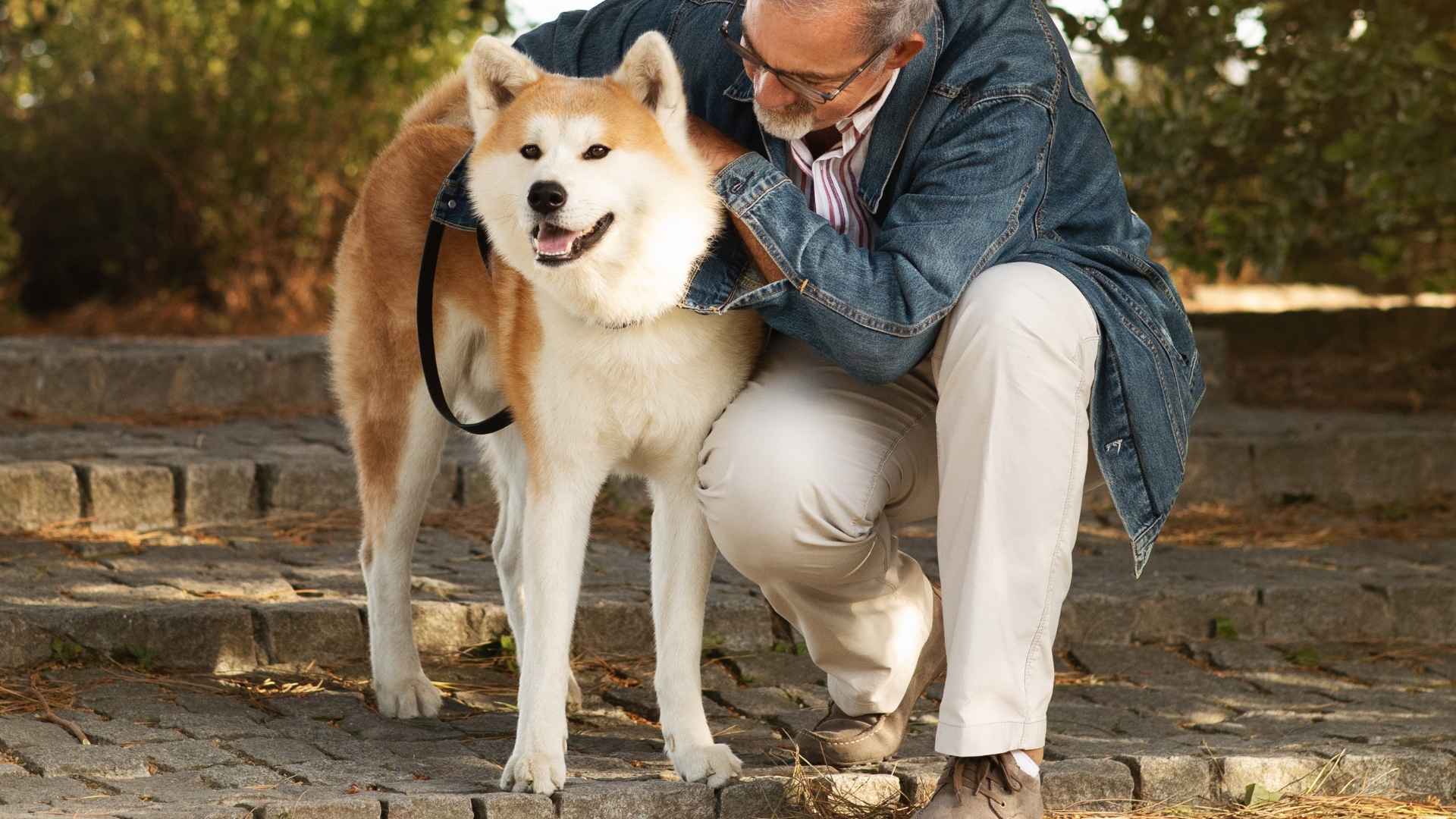In the vast and diverse world of dogs, personalities vary just as much as appearances. While some dogs are exuberant and outgoing, others lean toward a more cautious and reserved temperament. These shy breeds may not greet strangers with wagging tails or dive headfirst into new situations, but their watchful eyes miss nothing. They are gentle in nature, often requiring extra time and patience to build trust, but once that bond is formed, it is unshakeable.
Beneath their timid exteriors, many of these dogs possess a deeply ingrained instinct to protect their families. They may not bark at every passing stranger or race to the door when guests arrive, but they remain highly alert and responsive to threats. Their protective behavior comes not from aggression, but from deep loyalty.
In this article, we explore dog breeds that balance shyness with a surprising sense of guardianship. Whether you’re seeking a quiet companion or a sensitive sentinel, these breeds offer the best of both worlds.
Dog Breeds That Are Shy But Protective
1. Great Dane
Quick Facts
Height: 28–32 inches
Weight: 110–175 pounds
Lifespan: 7–10 years
At first glance, the Great Dane can seem pretty intimidating. They’re huge, often taller than most dogs, and their deep bark can catch anyone off guard. But once you spend time with one, it becomes clear—they’re just big softies.
These dogs are known for being gentle and sensitive. According to PetMD, they enjoy being close to their people and can get anxious when left alone for too long. In fact, many Danes prefer one-on-one time with their owner over being in a crowd.
Their history goes back thousands of years. They were originally bred for hunting and guarding, but today, they’re more likely to lean on you like a lap dog. Their protective instincts are still there, but they show them in calm, quiet ways.
Danes are usually slow to warm up to new people. They won’t rush in to make friends, but once they trust someone, that loyalty sticks. They don’t need to be loud or aggressive to protect—just their presence is enough.
Despite their size, they’re surprisingly easygoing indoors. As long as they get enough space and gentle care, they fit right into a relaxed home life.
2. Shetland Sheepdog
Quick Facts
Height: 13–16 inches
Weight: 14–20 pounds
Lifespan: 12–14 years
Shetland Sheepdogs, or Shelties, are smart, alert, and always tuned in to their surroundings. They’re smaller dogs with thick, fluffy coats and a sharp mind that doesn’t miss a thing.
Shelties were originally farm dogs, helping herd sheep in the Shetland Islands. That herding instinct still shows today—they’ll often try to guide people, pets, or even moving cars. It’s part of who they are.
These dogs love their families and are very loyal. They tend to stick close and can be cautious around new people. Shelties aren’t usually aggressive, but they will bark to let you know someone’s at the door.
Their shy side shows up most in busy or noisy places. They do better in calm homes where they feel safe and secure. Once they feel comfortable, they’re playful, friendly, and always eager to learn.
Training a Sheltie is usually easy. They respond well to clear instructions and positive feedback. They’re also sensitive, so gentle handling works best.
3. Akita Inu
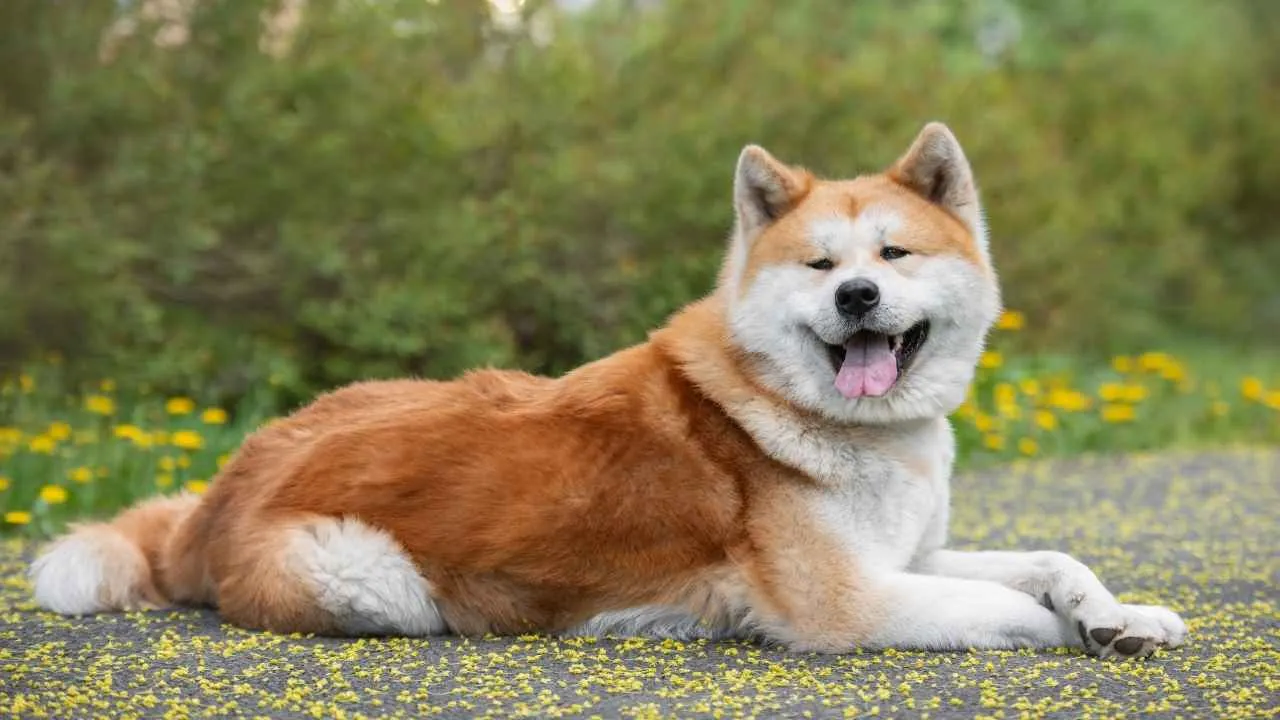
Quick Facts
Height: 24–28 inches
Weight: 70–130 pounds
Lifespan: 10–13 years
The Akita Inu is a serious, quiet dog that prefers to keep to itself. They’re strong and confident, but they don’t go looking for attention. You won’t see an Akita begging for cuddles—but they’ll always be nearby, keeping an eye on things.
This breed is known for being loyal to their owner and a little distant with everyone else. Strangers are often ignored or avoided. It’s not fear—it’s just that the Akita likes to take their time before trusting anyone new.
If you’re thinking of getting an Akita, be ready for a challenge. They’re not the easiest dogs to train, especially for first-time owners. They need clear rules and early socialization to help them adjust to new situations.
Even though they’re shy, Akitas are very protective. They’ll step in if they think their family is in danger, but they usually do it quietly—no barking or drama, just action.
Living with an Akita means respecting their space and independence. They don’t ask for much, but they give back in quiet, steady ways that earn your respect over time.
4. Dalmatian
Quick Facts
Height: 19–24 inches
Weight: 45–70 pounds
Lifespan: 11–13 years
Dalmatians are famous for their spotted coats, but there’s more to them than their looks. These dogs were once coach guards and war companions, bred for speed, stamina, and alertness. Their job was to protect travelers, and those instincts still exist in today’s Dalmatian.
They’re quick to notice anything out of the ordinary. When something seems wrong, they don’t hesitate to act. Their reaction isn’t just noise—they’re ready to back it up if needed. That makes them natural watchdogs.
Though protective, they don’t go looking for trouble. With people they know, Dalmatians are energetic and friendly. They enjoy playtime and family life, but don’t always do well with strangers unless they’ve been properly socialized early on.
Dalmatians can also be too protective if not trained well. Some may become over-attached or territorial. Setting boundaries while they’re still young helps keep these behaviors in check.
They need daily exercise and attention. Without it, they can become restless or act out. A well-raised Dalmatian, though, is a loyal, playful, and watchful companion.
5. Vizsla
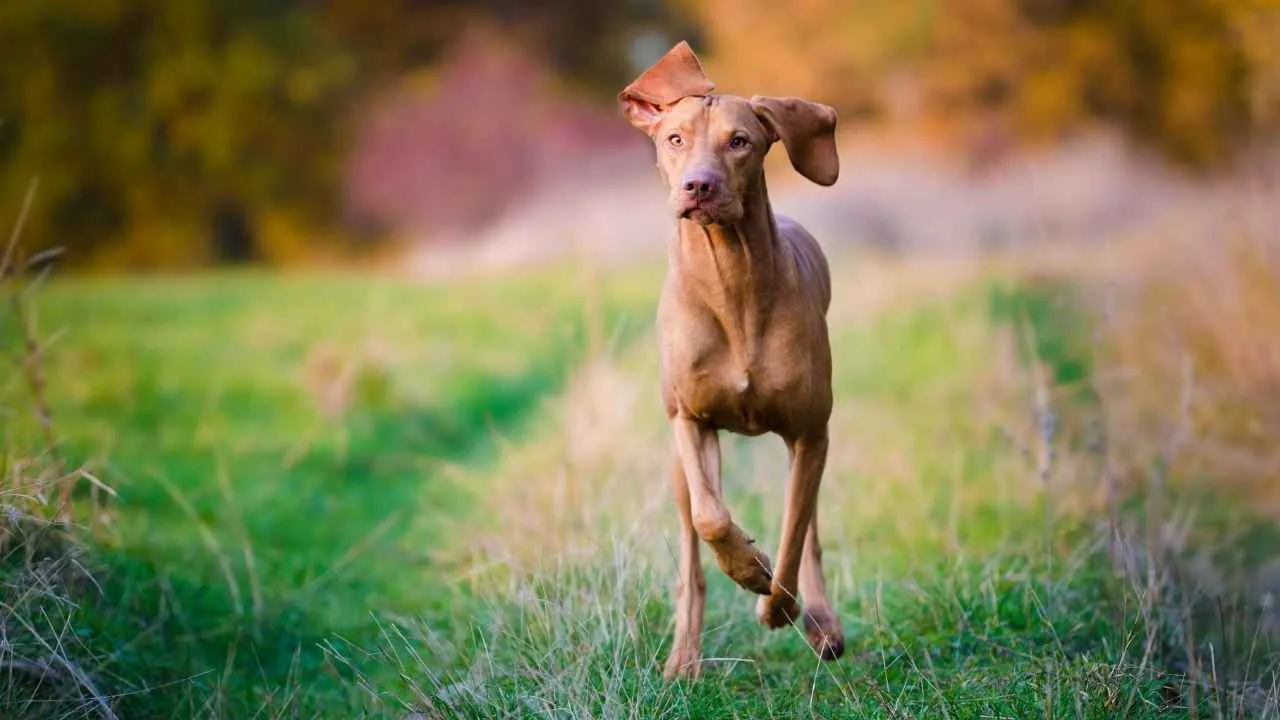
Quick Facts
Height: 21–24 inches
Weight: 44–60 pounds
Lifespan: 12–14 years
The Vizsla is a Hungarian hunting dog with endless energy and a soft heart. Built for long days outdoors, these dogs are active, graceful, and always in motion. But don’t let their strong frame fool you—they’re deeply affectionate and sensitive.
Vizslas form strong bonds with their owners. They’re known to follow their people from room to room, always wanting to be part of the action. That closeness can turn into anxiety if they’re left alone too long.
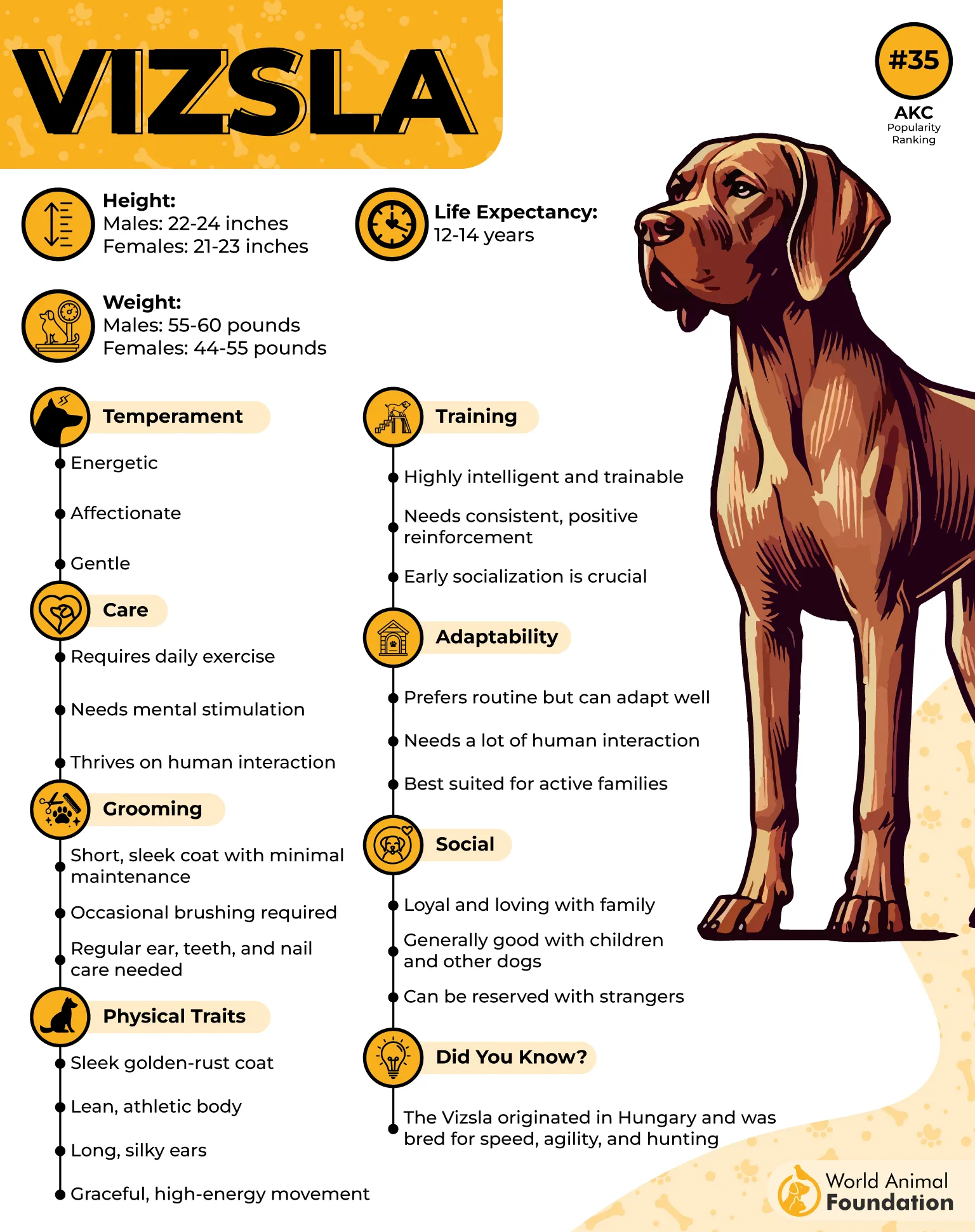
They’re not the most outgoing with strangers. At first, they may hang back or act shy. But once they feel safe, they warm up quickly and can be very friendly.
WebMD states that training and activity go hand in hand with this breed. They need things to do, both physically and mentally. Boredom can lead to mischief. Obedience, tracking, or agility work helps keep their sharp mind satisfied.
Though they have a gentle side, Vizslas also know when something’s not right. They’ll speak up if they sense a problem and won’t back down when it comes to protecting the people they care about.
6. Chihuahua
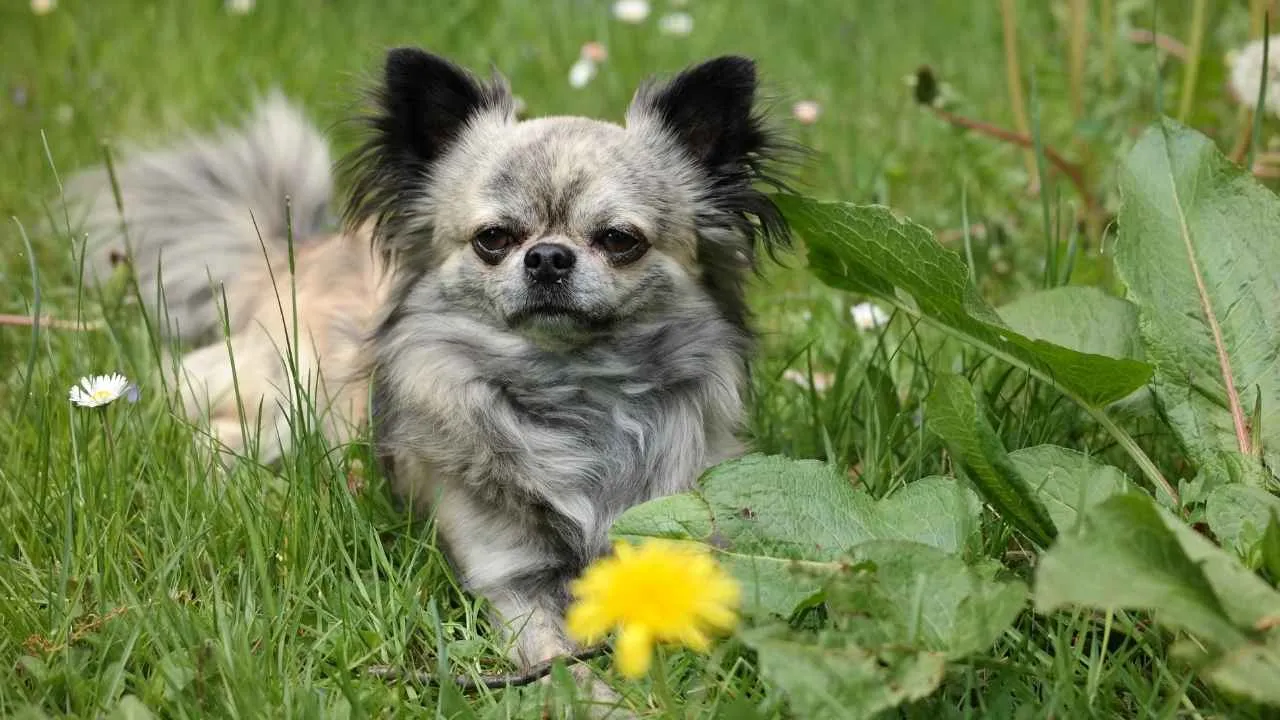
Quick Facts
Height: 6–10 inches
Weight: 3–6 pounds
Lifespan: 14–17 years
Tiny but tough, the Chihuahua is full of spirit. Despite being one of the smallest dog breeds, they aren’t afraid to let their voice be heard. Their bark is loud and sharp, and they’ll use it if something—or someone—makes them uneasy.
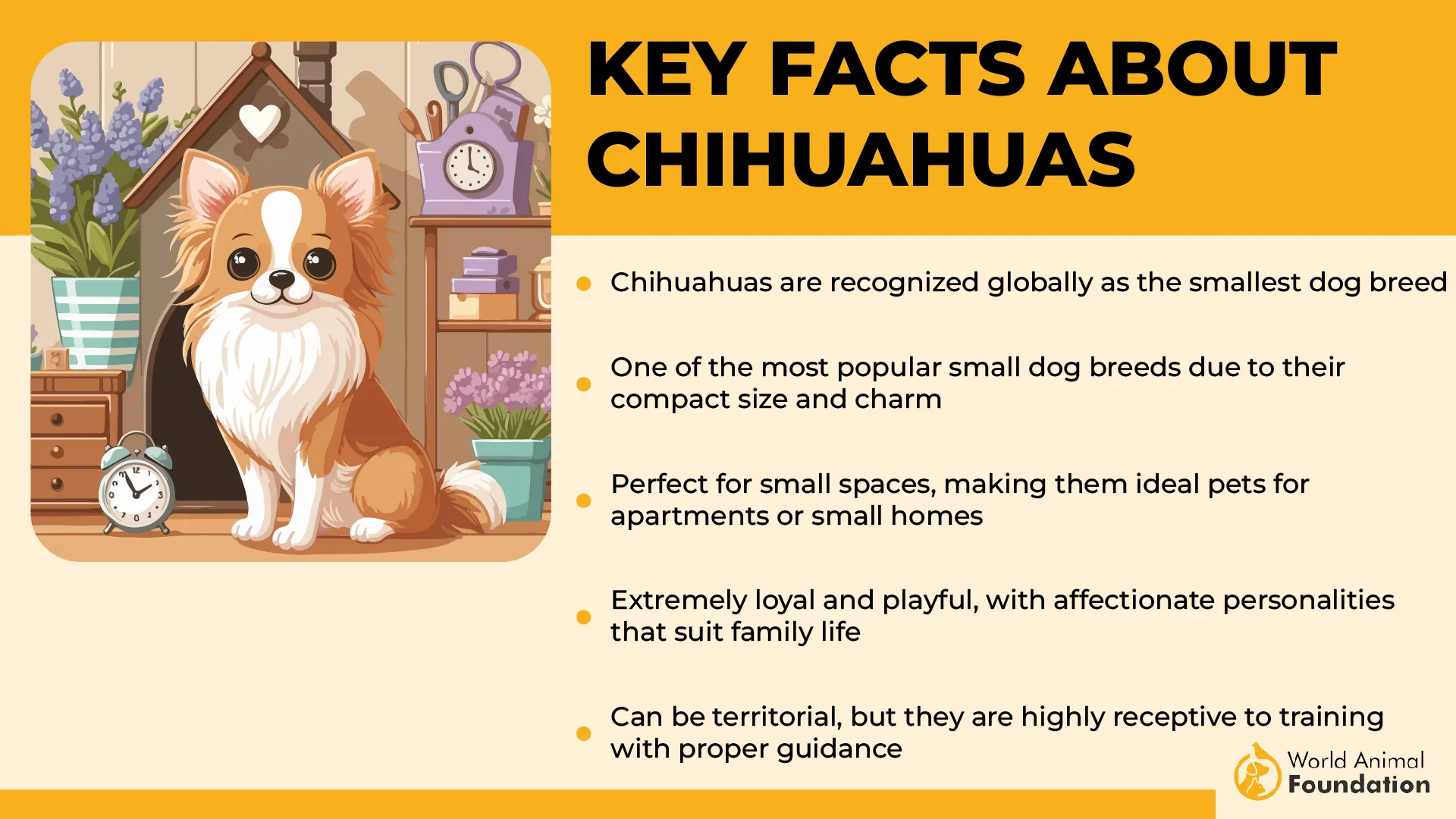
Chihuahuas are very loyal. Many form a close bond with just one person and stick to them like glue. They can be unsure or even snappy around strangers, especially without early socialization.
This breed tends to be cautious in new settings. Their alert nature makes them excellent at picking up on unfamiliar sounds or movement, and they don’t hold back in raising an alarm.
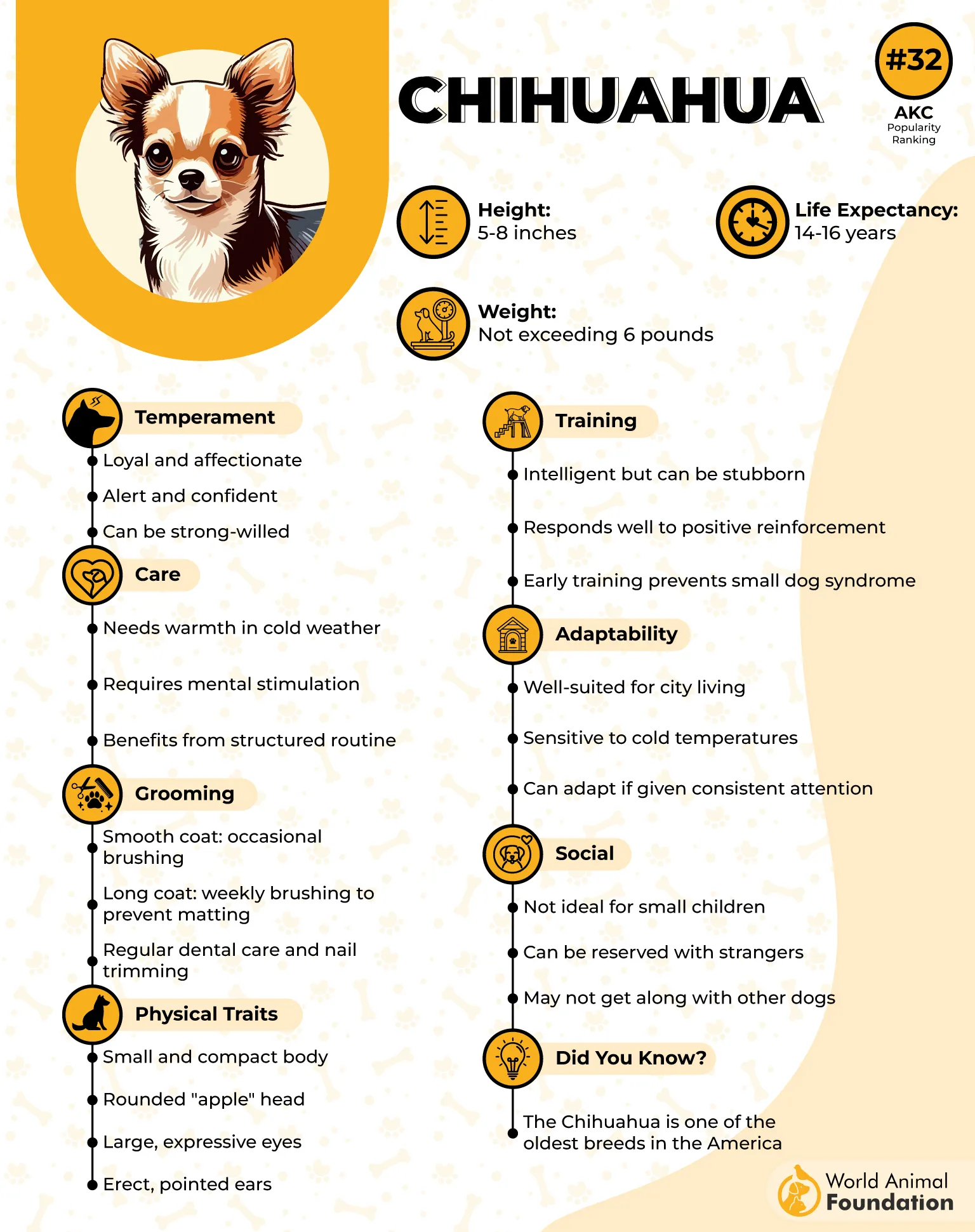
While they aren’t usually aggressive, they do have a bold attitude that surprises people. They don’t see themselves as small, and they don’t act like it either.
Chihuahuas do best in homes where they’re treated gently and trained with patience. With the right care, they become lively, loyal pets who stay closely tuned in to their family’s moods.
7. Yorkshire Terrier
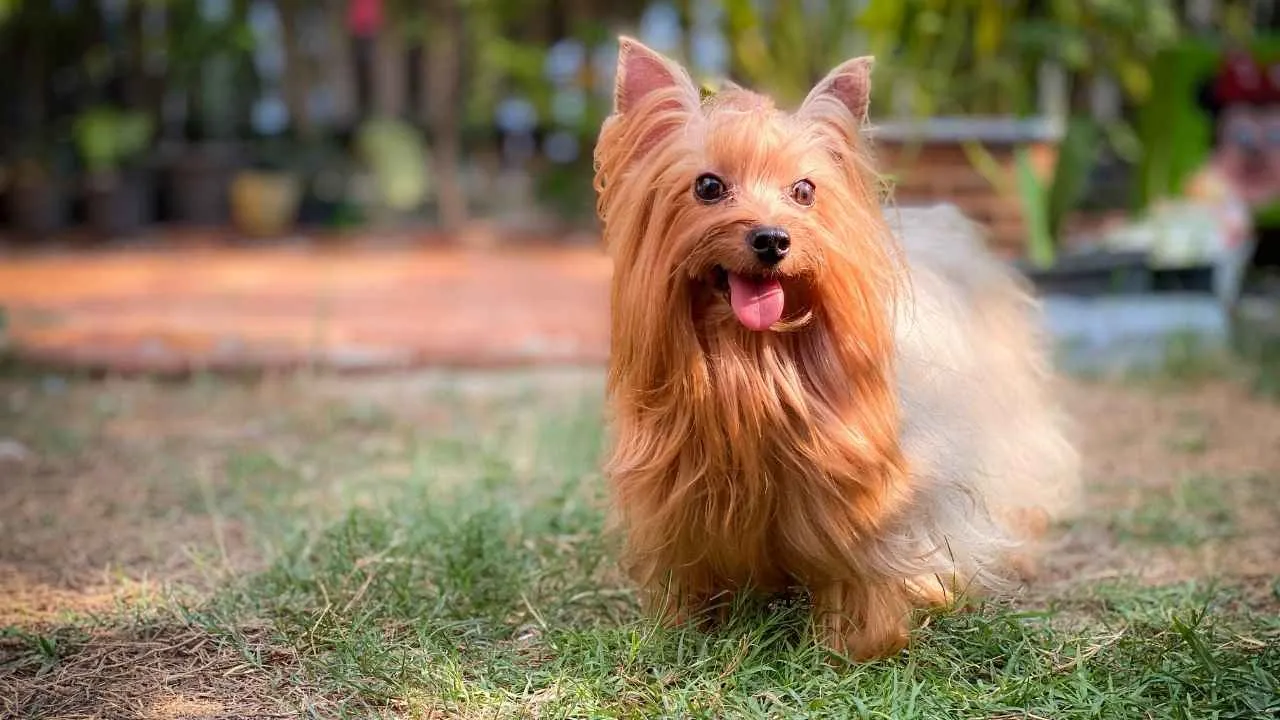
Quick Facts
Height: 7–8 inches
Weight: Up to 7 pounds
Lifespan: 13–16 years
Yorkshire Terriers are small in size but full of personality. Originally bred to chase rats in textile mills, these dogs are quick, brave, and always ready to speak up when something catches their attention.
According to the AKC, they often appear delicate, with long silky coats and dainty steps, but they’re true terriers at heart. They’re confident, curious, and often act like they’re much bigger than they really are.
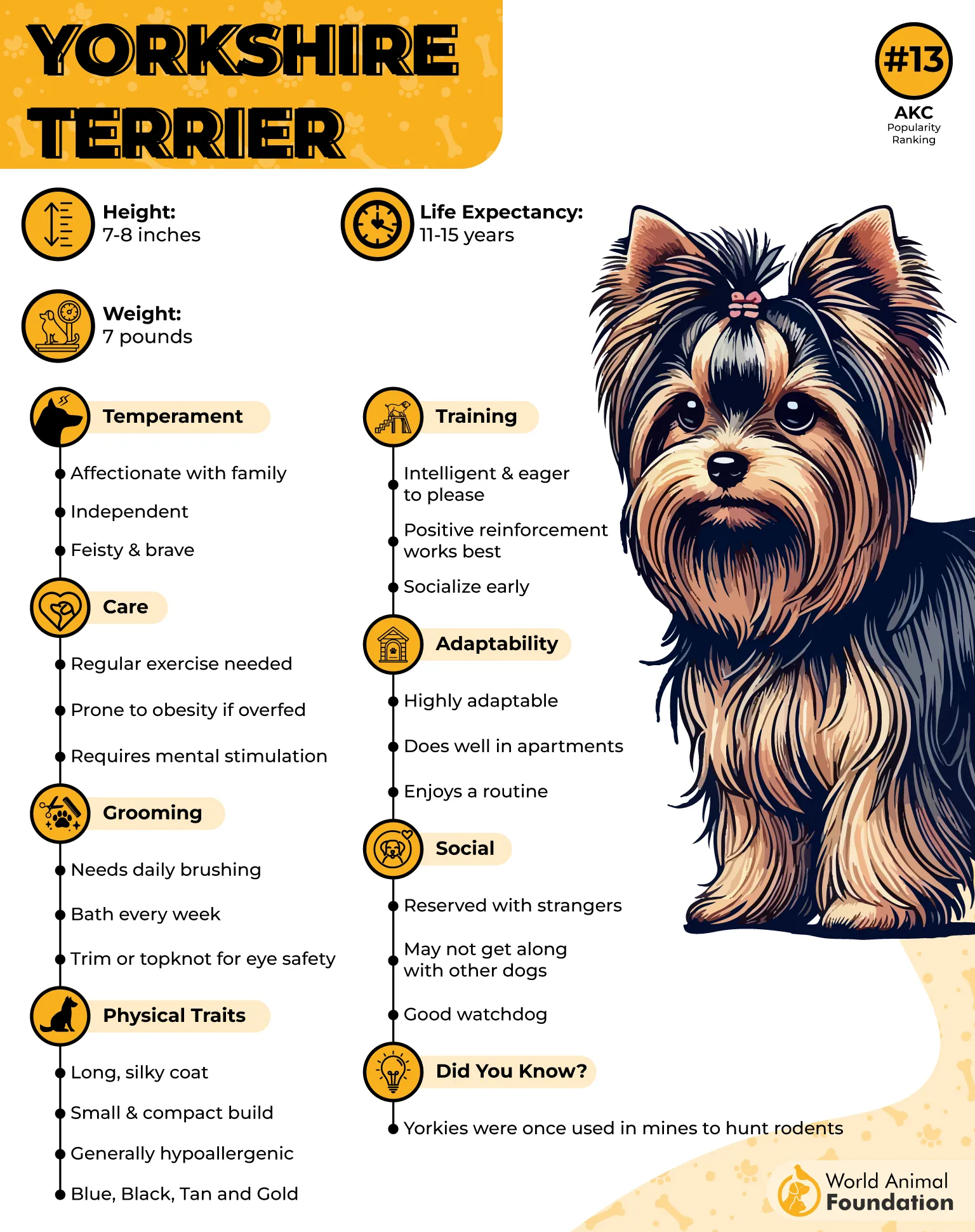
Yorkies form strong attachments to their people. With strangers, they can be standoffish or alert, especially if they sense something unfamiliar. They’re natural watchdogs and quick to bark if anything seems off.
They need guidance to keep their energy in check. Without structure, their protective side can turn into bossiness. Early training and steady routines help keep their behavior balanced.
Even in small apartments, they stay active. They don’t need long walks, but they do enjoy play, mental challenges, and time spent close to their owners. A Yorkie doesn’t miss much—and they’ll let you know it.
Conclusion
Timid dogs may not be the first to run toward strangers or dive into unfamiliar environments, but they often turn out to be the most loyal companions of all. Behind their shy behavior lies a heart full of devotion, and with proper socialization and consistent training, many of these pups become confident, calm members of the family. Whether it’s a massive dog that needs extra reassurance or a small stature breed that gets scared easily by loud noises, the gentle nature of these furry friends is worth the effort.
These breeds aren’t always low maintenance—they can struggle with separation anxiety, require mental stimulation, and often need more socialization from a young age. But with time and care, even the most notoriously skittish dog can thrive in a loving home. Their loving nature, paired with a natural instinct to protect, makes them surprisingly gentle yet reliable guard dogs.
From gentle giants to high-energy pups, these timid breeds offer companionship, intelligence, and deep bonds with their loved ones. Most people quickly realize that under the surface, these dogs are far more than their cautious first impressions. They just need the right space, patience, and understanding to truly shine.


